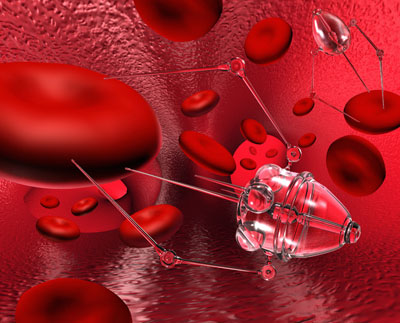 |
| Health sciences |
Nanotechnology is the science of the small, although the subject area is not small but too vast and interesting. Nanotechnology deals with small, very small structures, usually less than 100 nanometers in diameter. A nanometer is one billionth of a meter. Materials of this size have some unique properties that can be explored for many applications, such as nanomedicine.
Nanomedicine is one of the emerging sectors under nanotechnology. By using nanomedicine, it would become possible to repair damaged human tissues, say the scientists working on this specialized technology. It would also be possible to grow human tissues using nanomedicine. This implies that it would be possible to grow a new liver or a new heart or any other organ and replace the damaged organ, they claim following extensive research work done in this field. This is also an application of the stem cells. nanomedicine has implications in curing diseases like AIDS, alzheimer's, cardiovascular diseases etc.
The idea on which the nanomedicine works is that it creates nano bots (extremely small vehicles used for carrying treatment) which can be injected in the human body. After being injected, these nano bots go to the affected cancerous tissue and give out specific small bouts of radiation to those tissues which could avoid the unpleasant side effects of chemotherapy or radiation therapy. Neuroscientists are developing nano-particles to cross the blood-brain barrier which has potential in treating brain tumors in the near future. NASA is also doing substantial research on nanomedicine and its application in space medicine. When a cell is damaged by radiation, it exhibits different proteins on its surface. The nano bots would be able to detect such proteins and repair the cell possibly by giving it antioxidants. These type of various applications and ongoing research work show that the area of nanotechnology is very vast and emerging steadily.
Thus, nanomedicine has all the potentials to revolutionize the world of medicine. It would be possible to cure presently incurable diseases and help in preventive medicine as well, believe the scientists. Nanomedicine as it is being portrayed would definitely help in increasing life spans of human beings, promoting healthier lives and enriching the world through health and vitality.
For more Information On Health Sciences,